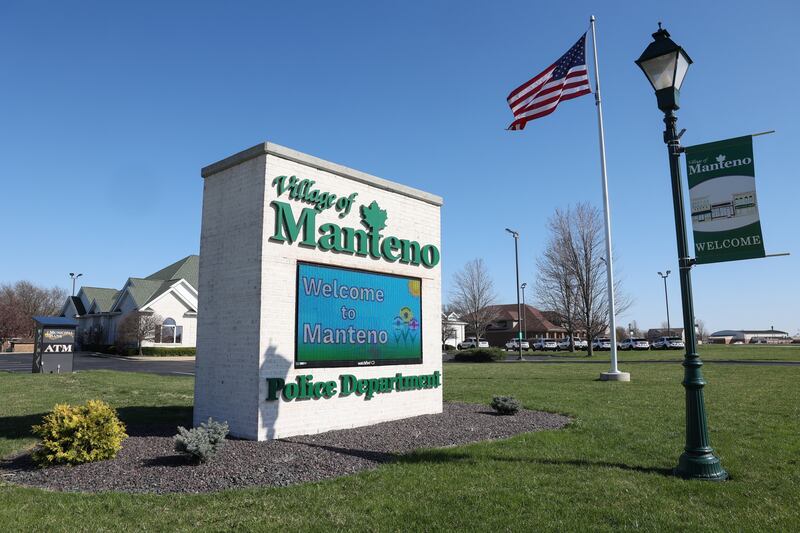Much like neighboring municipalities, the village of Manteno had to decide whether to continue the 1% grocery tax that the state will be ending in January.
And just as Bourbonnais, Bradley and Kankakee already have done, Manteno followed suit and opted to continue the tax at the local level.
It was a unanimous 5-0 vote Tuesday by village trustees Michael Barry, Todd Crockett, Joel Gesky, Peggy Vaughn and Anette Zimbelman. Trustee CJ Boudreau was absent.
Barry said the tax, which was previously assessed by the state since the 1990s, generated $325,000 for Manteno in the past year. Gov. JB Pritzker signed legislation in August 2024 that eliminated the 1% tax as of Jan. 1, 2026.
The state gave local governments the option of keeping the tax in place.
“The problem is, is the way that the state dealt it,” said Barry, who is the finance committee chairman. “They threw it back on the local towns to make the local towns look bad. … We’re paying it now. Yeah, is it a bad thing? But it’s also, at the time with the financial situation, $325,000-plus will really help out the village.”
Mayor Annette LaMore said since the general fund balance is lower than it has been for many years, it’s important to the village to maintain the grocery tax.
“That helps us,” she said. “You can see that every time a project comes out, how expensive it is. And people are used to paying it, because we’ve been paying it for many years.”
LaMore noted other communities have also voted to continue the grocery tax.
“It’s not like we’re adding something that wasn’t already there,” she said.
During public comment at the beginning of the meeting, Manteno resident Francine Fatima implored the board to vote against the tax.
“It’s adding on to the burden of taxpayers,” she said. “... I just say to this board, please be fiscally responsible and act differently than a number of other communities have.”
LaMore understands how some would like to see the tax end.
“We all would like to see all of our taxes go away, but it’s not going to happen,” she said.
Barry noted it’s a tax that’s not felt as hard as some others, such as the sales tax.
“I just went to Walmart the other day, and I think it was $200 [for groceries], and I think [the tax] was $2.03 or something,” he said. “It’s an effect, it’s not a huge effect, but it is also a big money generator for the village. So that’s why we decided to keep it in place, and we’ll go from there.”
